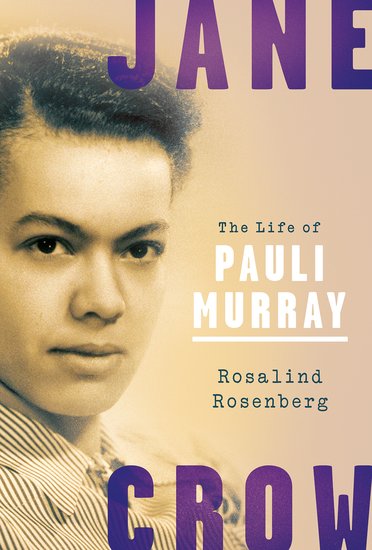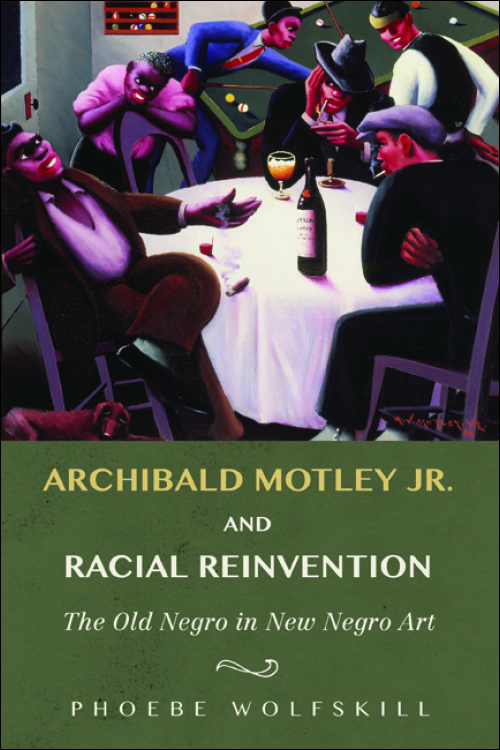Jane Crow: The Life of Pauli Murray
Oxford University Press
2017-05-01
512 Pages
31 illustrations
6-1/8 x 9-1/4 inches
Hardcover ISBN: 9780190656454
Rosalind Rosenberg, Professor Emerita of History
Barnard College, Columbia University, New York, New York

- Definitive biography of a key figure in the civil rights and women’s movements.
- Sensitive exploration of a black person identified at birth as female who believed she was male, before the term “transgender” existed.
- Murray’s legal work was influential in key Supreme Court cases.
- New Yale residential college to be named for Murray in 2017.
Throughout her prodigious life, activist and lawyer Pauli Murray systematically fought against all arbitrary distinctions in society, channeling her outrage at the discrimination she faced to make America a more democratic country. In this definitive biography, Rosalind Rosenberg offers a poignant portrait of a figure who played pivotal roles in both the modern civil rights and women’s movements.
A mixed-race orphan, Murray grew up in segregated North Carolina before escaping to New York, where she attended Hunter College and became a labor activist in the 1930s. When she applied to graduate school at the University of North Carolina, where her white great-great-grandfather had been a trustee, she was rejected because of her race. She went on to graduate first in her class at Howard Law School, only to be rejected for graduate study again at Harvard University this time on account of her sex. Undaunted, Murray forged a singular career in the law. In the 1950s, her legal scholarship helped Thurgood Marshall challenge segregation head-on in the landmark Brown v. Board of Education case.
When appointed by Eleanor Roosevelt to the President’s Commission on the Status of Women in 1962, she advanced the idea of Jane Crow, arguing that the same reasons used to condemn race discrimination could be used to battle gender discrimination. In 1965, she became the first African American to earn a JSD from Yale Law School and the following year persuaded Betty Friedan to found an NAACP for women, which became NOW. In the early 1970s, Murray provided Ruth Bader Ginsburg with the argument Ginsburg used to persuade the Supreme Court that the Fourteenth Amendment to the Constitution protects not only blacks but also women—and potentially other minority groups—from discrimination. By that time, Murray was a tenured history professor at Brandeis, a position she left to become the first black woman ordained a priest by the Episcopal Church in 1976.
Murray accomplished all this while struggling with issues of identity. She believed from childhood she was male and tried unsuccessfully to persuade doctors to give her testosterone. While she would today be identified as transgender, during her lifetime no social movement existed to support this identity. She ultimately used her private feelings of being “in-between” to publicly contend that identities are not fixed, an idea that has powered campaigns for equal rights in the United States for the past half-century.
Table of Contents
- Abbreviations
- A Note on Pronouns and Other Word Choices
- Introduction
- Part I: Coming of Age, 1910-1937
- Chapter 1 – A Southern Childhood
- Chapter 2 – Escape to New York
- Part II: Confronting Jim Crow, 1938-1941
- Chapter 3 – “Members of Your Race Are Not Admitted”
- Chapter 4 – Bus Trouble
- Chapter 5 – A Death Sentence Leads to Law School
- Part III: Naming Jane Crow, 1941-1946
- Chapter 6 – “I Would Gladly Change My Sex”
- Chapter 7 – California Promise
- Part IV: Surviving the Cold War, 1946-1961
- Chapter 8 – “Apostles of Fear”
- Chapter 9 – A Person In Between
- Chapter 10 – “What Is Africa to Me?”
- Part V: A Chance to Lead, 1961-1967
- Chapter 11 – Making Sex Suspect
- Chapter 12 – Invisible Woman
- Chapter 13 – Toward an NAACP for Women
- Part VI: To Teach, To Preach, 1967-1977
- Chapter 14 – Professor Murray
- Chapter 15 – Triumph and Loss
- Chapter 16 – The Reverend Dr. Murray
- Epilogue
- Notes
- Bibliography
- Index








